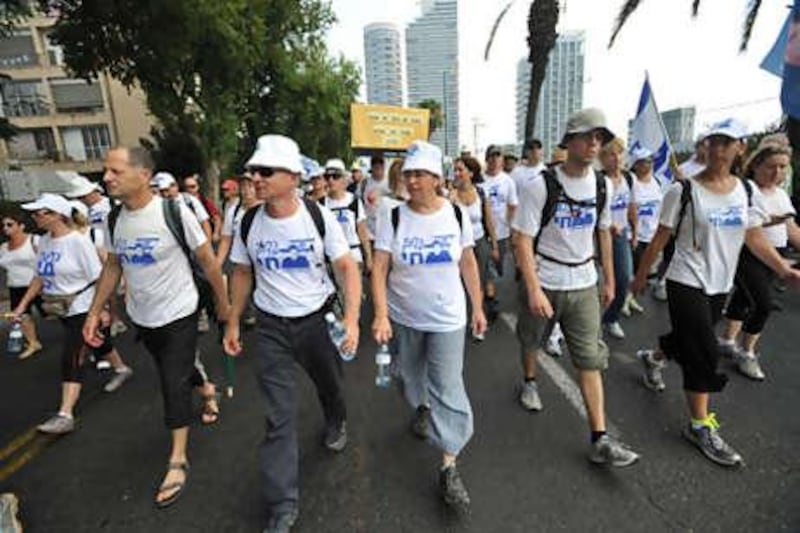Israel has given the go-ahead for the international community to import construction materials into the Gaza Strip in an easing of its blockade, just before the US president and the Israeli prime minister meet in Washington today. The government published a list of construction materials to be allowed entry into the Hamas-run territory, but only for projects approved by the Palestinian Authority and implemented and supervised by the international community. Benjamin Netanyahu will meet Barack Obama today hoping to repair a strained relationship and firm up the alliance with the United States at a time when Israel has been increasingly isolated by international criticism. The fifth meeting between the two had been scheduled to take place on June 1, but Mr Netanyahu cancelled the sit-down to deal with the fallout after Israel's raid on an aid flotilla, whose aim was to break the Gaza Strip blockade. The action against the Freedom Flotilla killed nine activists and sparked fury in the Islamic world. Today the Israeli government said in a statement that although the building materials are liable to be used for Hamas military purposes such as building bunkers, fortifying positions and digging tunnels, "Israel will permit their entry into Gaza so as to facilitate construction projects". Because of the blockade, little reconstruction has taken place in the Palestinian territory since Israel's devastating 22-day military offensive, which ended in January 2009. A separate list maintains a ban on the import of arms and ammunition as well as "dual-use" items Israel fears could be used for military means. Tommy Vietor, a White House spokesman, said: "This is an important step in implementing the new policy announced by Israel two weeks ago." Mr Obama "looks forward to discussing" the matter during his Oval Office talks with Mr Netanyahu today, Mr Vietor. The new policy came in response to mounting international pressure on Israel to ease its four-year siege on Gaza. Mr Netanyahu's last visit to the White House, in March, ended in disagreement and revealed how dysfunctional his relationship with Mr Obama had become after a year of clashes over Israeli settlement policy. The meeting was closed to photographers and the two men did not appear together in public or issue a joint statement. The unusual treatment for a visiting prime minister was interpreted by some as a deliberate snub. In Israel, meanwhile, thousands of marchers have brought the capital Tel Aviv to a standstill, urging the government to do whatever it takes to win freedom for a soldier captured four years ago by Gaza militants. Near Israel's border with Gaza, thousands more gathered for a concert led by a world-famous conductor to press Hamas to let the Red Cross visit the soldier for the first time. The scenes are part of a high-profile campaign that has opened deep divisions in Israel and put Mr Netanyahu on the defensive. While the nation overwhelmingly wants Sgt Gilad Schalit to come home to his family, there are deep disagreements over whether the price demanded by Hamas is too high: the release of hundreds of Palestinian prisoners, including many convicted of terror attacks. Hamas-linked militants seized Schalit four years ago inside Israel in a cross-border raid that killed two other soldiers. In return for his release, Hamas is demanding that Israel free some 1,000 Palestinian prisoners, including militants convicted of involvement in deadly attacks. Israel is holding an estimated 6,300 Palestinian prisoners, according to B'tselem, an Israeli advocacy group. Schalit's family has now taken to the streets to try to force the Israeli government to bend, and the campaign has drawn some 120,000 marchers over the past week, according to organisers. * From reporting by Steven Stanek in Washington and AFP and AP
Israel lets building materials through Gaza blockade
Go-ahead granted under international supervision, hours before Barack Obama meets Benjamin Netanyahu.

Editor's picks
More from the national




